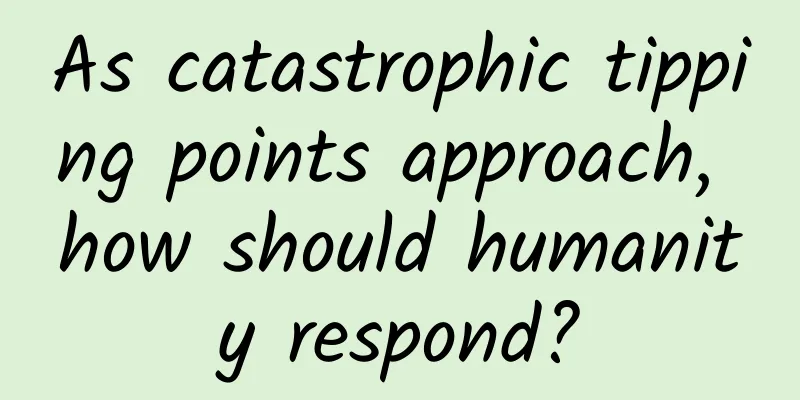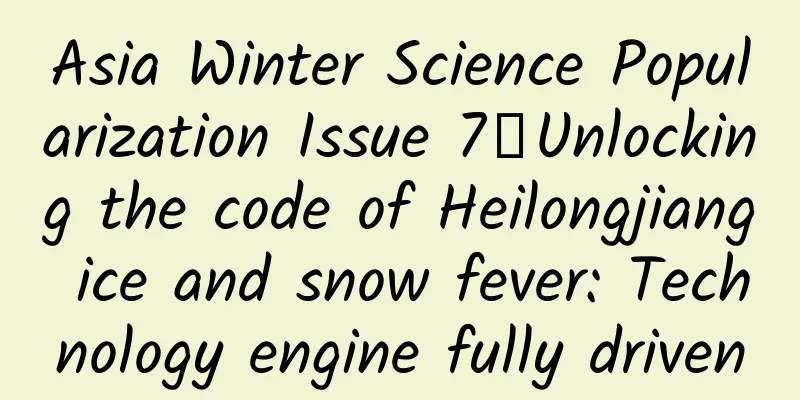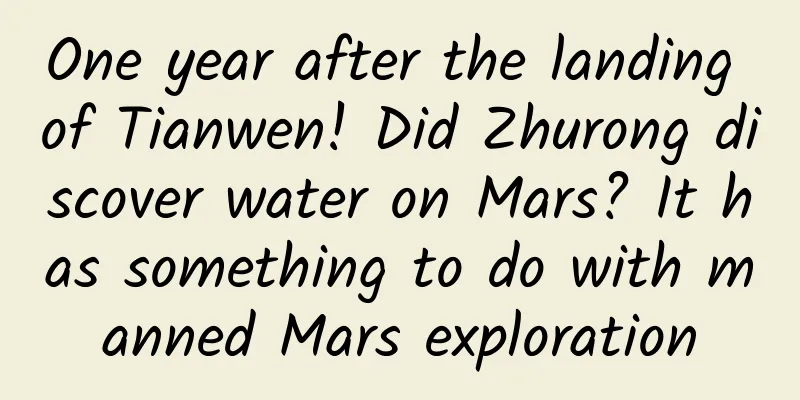As catastrophic tipping points approach, how should humanity respond?

|
The vicious cycle of catastrophic climate change may begin within 15 years, and the Earth's ecosystem may collapse much faster than previously thought. A new study published in the journal Nature on June 22 issued such a warning and predicted that more than one-fifth of the catastrophic tipping point events that may occur in the world will occur as early as 2038. The catastrophic tipping point events cited are quite dramatic: the melting of Arctic permafrost, the collapse of the Greenland ice sheet, and the sudden transformation of the Amazon rainforest into tropical grasslands. While it is not yet possible to predict how climate-induced tipping point events and local human impacts on ecosystems will relate, the researchers point to the potential for mutual reinforcement between the two; continued stress and extreme events will interact to accelerate changes that may be beyond our control. Once conditions reach a tipping point, it will be too late. This also means that the significant social and economic costs of climate change may come earlier than expected, leaving governments with less time to act than initially thought. This research result has attracted widespread attention and has also triggered more discussions on climate change and ecosystems. The situation is indeed quite serious. Since 2019, the number of climate-related disasters around the world has increased unprecedentedly, as we often see in news reports: fierce and abnormal floods, record-breaking heat waves, dark hurricanes, raging wildfires, and even unprecedented "desert rainstorms". The drama of "deep water" here and "hot" there continues to be staged. No wonder scientists have frequently warned in recent years: the climate has started a shocking and unexpected operating mode, and multiple climate tipping points are approaching. Tipping point is a critical state. I understand that it is also a different expression of risk, safety margin or edge of collapse. At present, the study of tipping points based on computer models is still a young and controversial science. It may be easier for people to understand ecological tipping points, which refer to the critical thresholds at which local ecosystems undergo "irreversible" changes. For example, the vast Amazon rainforest "produces" half of the rain and is one of the largest tropical rainforests on Earth, with huge biodiversity and ecosystem functions. When its forests are cut down in large numbers, the water supply will decrease accordingly. Mathematical models of precipitation and evaporation cycles have shown that there is a critical area of green cover, below which the forest will be lost. In fact, in various complex systems in nature, there are many critical points like this, because the dynamic process of their development is extremely unstable and often contains critical states. It is even possible that when a certain critical value is reached, there is no time left for people to assess the risks, and no timely and valuable warnings can be issued, triggering sudden and drastic changes. In the past, most studies on critical points focused on only one destructive factor, but the ecosystem is not facing a single problem. The latest research reveals that even if the main ecological pressure remains stable, more than 15% of ecosystems will collapse due to other ecological pressures and extreme climate. If we take into account multiple ecological pressure factors such as water shortages, severe land degradation, and river pollution, we will conclude that the ecological critical point of the Amazon rainforest will be advanced. Therefore, scientists believe that the previous estimate of the Intergovernmental Panel on Climate Change of the United Nations - that the ecological tipping point of the Amazon rainforest will occur in 2100 is too optimistic. One researcher even declared that "we may very well see the last generation of humans in the Amazon rainforest." Tipping points are often also turning points. Hasn't the history of human development also experienced tipping points and turning points? Yuval Noah Harari, the famous Israeli historian and philosopher who wrote the best-selling book "Sapiens: A Brief History of Humankind", recently released a new book "Sapiens: A Brief History of Humankind" (Part 1) specifically for children: "The Unstoppable Human Race: How We Took Over the World". The titles of the first chapter and the first section of the book are: "Humans Are Animals Too" and "We Were Once Savage". The author believes that an important turning point for humans to become human and master very powerful forces, becoming unique among animals, is learning to use tools, especially fire. Robert Kelly, a famous American archaeologist, explored and thought about the context of human development from a more macro historical perspective. In the book "The Fifth Beginning: How 6 Million Years of Human History Predict Our Future", he wrote: In order to become one thing, cell tissues reach a critical point and end up becoming a completely different species. "In the past 6 million years, humans have experienced four such critical points. I call them 'beginnings' because they mark changes in the basic characteristics of human existence and the beginning of an era of a new life for our species." In chronological order, the four critical points or turning points mentioned by Kelly are: "technology" made humans win in the animal world, the first turning point began; "culture" made people truly human, the second turning point began; "agriculture" made humans move from hunting to settlement, the third turning point began; "country" made civilization marked with inequality, violence and war, the fourth turning point began. Today, we are at the critical point of the fifth turning point. Everyone is participating in an unprecedented global upheaval. Human society is undergoing major changes. A new era is opening up... Yes, the global challenges facing humanity today, and the changes that are about to occur, may be more severe than at any other time in history. The choices we make will determine our ultimate destiny. |
>>: Is there another core hidden in the Earth's inner core?
Recommend
Microservice architecture: PaaS cloud platform architecture design based on microservices and Docker container technology (microservice architecture implementation principles)
The goal of building a PaaS cloud platform based ...
Will you have a spending spree after the Wuhan pneumonia epidemic? Which industries are likely to experience a consumption frenzy?
A sudden epidemic has forced most people to stay ...
What are the things to pay attention to when developing a mini program?
Mini programs are definitely the most popular pro...
Can people with myopia "offset" presbyopia and take off their glasses when they get older?
Can you pay off the “myopia debt” you incurred wh...
The first issue of Aiti Tribe: Spark offline analysis dimensions
【51CTO.com original article】 Activity description...
Do children only have stuffy noses, runny noses, and sneezing when they have a cold? That may not be the case...
gossip In spring, if children repeatedly experien...
Mid-Autumn Festival Special: I want to go home and see ____!
Traveling across the world See the vast world But...
Can't stand the pain in your cervical spine? Huaxi doctors teach you two simple tricks that you can do at any time
Now this era No cervical spondylosis I am embarra...
Physical examination report says low bone density? Don’t rush to take calcium tablets, here is the truth!
When low bone density is found during a physical ...
What are the methods and means for new media operations to attract new users?
For new media operations , attracting new users n...
The good opportunity to travel through time has come again! Jupiter will be in opposition to the Sun at 3 a.m. tomorrow. If you miss it, you will have to wait until 2129, more than a hundred years later.
Hurry and pack your bags, because the sky is abou...
How did Chen Danian create an application as large as WeChat by working only 6 hours a day?
As a tool product that already has 900 million us...
The latest regulations on the 2022 epidemic: Is the city under lockdown? Can I come and go freely?
Following Shenzhen's stepped-up epidemic prev...
How to operate products in a “gamified” way?
When it comes to playing games, everyone must be ...
Redstone China: The most beautiful scenery
Color is a simple and straightforward observation...






![[Practical Tips] Tencent Senior Product Manager: Talking about Operations with Seven Emotions and Six Desires](/upload/images/67cc435b15877.webp)


